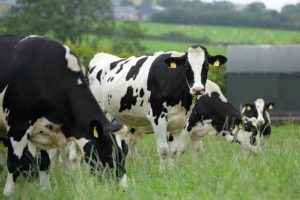
The dairy sector plays an extremely important role in UK agriculture, writes Richard Wrightson, legal advisor for Crombie Wilkinson Solicitors. Its success is underpinned by countless relationships between farmers and processors. For some time, however, there have been instances where these relationships have not been constructive, and the vulnerable position of farmers has been exploited.
• Ensuring fair and transparent dealings between dairy farmers and processors.
• Protecting the interests of dairy farmers by providing clear contractual obligations.
• Promoting sustainability and long-term stability within the dairy sector.
The Regulations
The Regulations address several areas critical to dairy contracts that have historically been a source of controversy and unfairness including:
• Format
The Regulations confirm that all dairy contracts must be in writing and signed by both parties.
• Term
The contract must also clearly state whether it is for a fixed period or ongoing “evergreen” contract.
• Variation and termination
Any changes to the contract must be agreed upon in writing by both parties and termination will require at least 12 months’ notice unless there’s a material breach or both parties agree to a shorter period.
• Enforcement
The Regulations confer a power on producers to refer complaints to the Secretary of State if the contract is non-compliant, or if a business purchaser has failed to provide an explanation regarding pricing following a request by the producer. Non-compliance by a business purchaser can result in penalties, including compensation payable to the producer.
Importantly, the Regulations introduce a pricing and payment framework that is intended to provide farmers with the ability to negotiate fairer terms and secure more predictable income streams.
Real Change?
It will be welcome news that the Regulations are not mere ‘guides’ and carry a very real risk if they are not complied with.
The Regulations introduce an audit system that will ensure producers and processors are complying with the Regulations and implementing compliant contracts.
There are also penalties and sanctions available against processors who fail to comply with ‘fair dealing’ obligations which, if breached, could result in fines and potential restrictions on their operations.
A substantial basis for the Regulations is that dairy contracts must include a term requiring processors to act in good faith, considering both their own interest and those of the producer. Fundamentally, this changes the landscape for both producers and processors and puts an even playing field for both parties, front and centre.
What does this mean for Farmers?
The Regulations are the first set of regulations imposed on the dairy industry following the introduction of the Agriculture Act 2020 and are pointedly aimed to protect the parties against unfair contractual terms and business practices. The Regulations also ‘have teeth’ and the message they convey is comply, be transparent or suffer the penalties. With indications from the legislature that similar regulations could be introduced and applied to other farming sectors, they mark an important step toward equal bargaining power.
It is mandatory for all new milk contracts issued from 9 July 2024 to comply with the code. For all existing contracts which are already in place, they must be compliant by 9 July 2025. Therefore, producers and processors must familiarise themselves with these new obligations to ensure compliance and capitalise on the benefits of a more transparent and balanced industry. For more detailed advice on how these Regulations might impact your business, or for assistance with compliance, please contact Crombie Wilkinson Solicitors on 01653 600070 to speak to a specialist who can help you to navigate the complexities of this emerging landscape and ensure that your interests are protected.
If you are a NFU Farmer & Grower member, you may be eligible to benefit from the NFU Contract Checking Service. Seeking early advice before signing on the dotted line can protect you from potentially costly, lengthy and stressful legal disputes in the future. As a NFU legal panel firm in the NFU North region, Crombie Wilkinson Solicitors offers the NFU contract checking service that will help you understand exactly what you’re signing.
You can now read the most important #news on #eDairyNews #Whatsapp channels!!!
🇺🇸 eDairy News INGLÊS: https://whatsapp.com/channel/0029VaKsjzGDTkJyIN6hcP1K

























